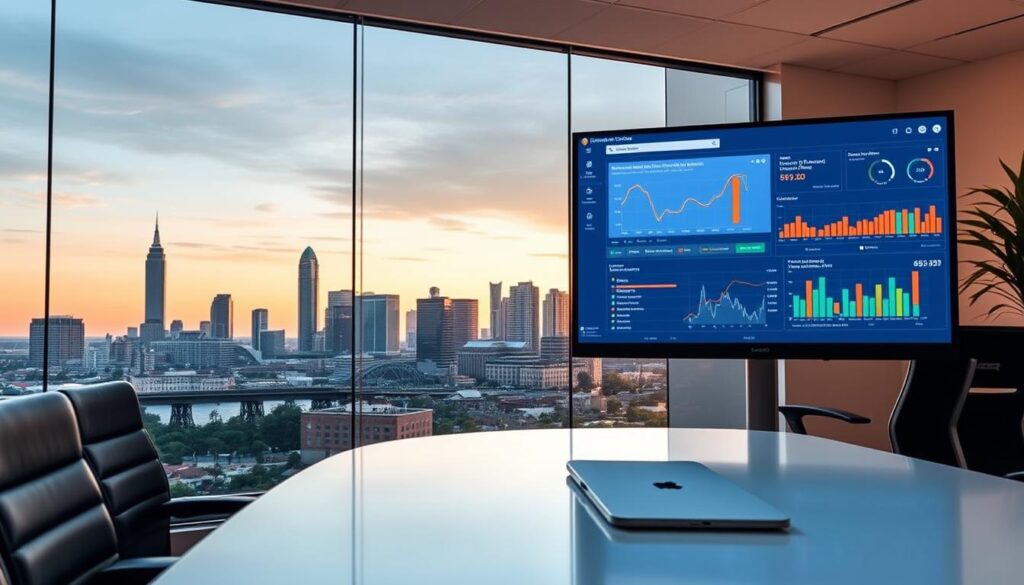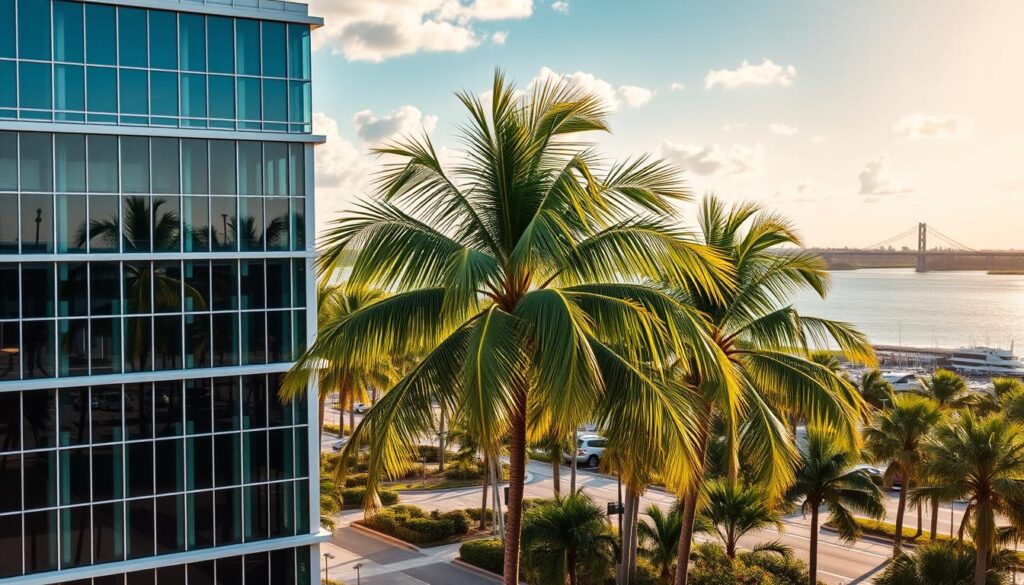Ever wondered how entertainment and recreation businesses get noticed online? Well, it’s all about SEO, which stands for Search Engine Optimization. Basically, it’s a way to make sure your website pops up when people are searching for fun things to do. Whether it’s a movie theater, a concert venue, or a theme park, SEO helps these places get found online. In this article, we’re diving into what SEO means for the entertainment and recreation world and why it’s super important.
Key Takeaways
- SEO helps entertainment and recreation businesses get found online.
- Using the right keywords is crucial for attracting the right audience.
- Creating engaging content keeps visitors interested and coming back.
- A well-structured website improves user experience and search rankings.
- Social media presence can boost your SEO efforts.
Understanding SEO for Entertainment & Recreation
Defining SEO in the Entertainment Context
SEO, or Search Engine Optimization, is a digital marketing strategy that enhances online visibility by optimizing web content to rank higher in search engine results. In the entertainment and recreation industry, SEO plays a unique role. It’s not just about getting visibility; it’s about connecting with audiences who are searching for the latest shows, events, or experiences. By optimizing content with relevant keywords and engaging formats, entertainment businesses can ensure they capture the interest of their target audience. This involves a mix of creativity and technical know-how, making SEO an essential tool in the competitive entertainment landscape.
Importance of SEO for Recreation Businesses
Recreation businesses thrive on engagement and visibility. SEO is crucial because it helps these businesses appear in search results when potential visitors are looking for things to do. Imagine someone searching for "fun activities near me"—your business needs to be right there in the results. SEO not only increases your online presence but also drives organic traffic, which can lead to more bookings and visits. With the right SEO strategies, you can ensure your business stands out in the crowded field of recreational activities.
Key Components of Entertainment SEO
Effective entertainment SEO comprises several key components:
- Keyword Research: Identifying the terms your audience uses to search for entertainment options.
- Content Optimization: Ensuring that your content is engaging and includes the right keywords naturally.
- Technical SEO: This includes improving site speed, mobile-friendliness, and ensuring your site is easily navigable.
In the world of entertainment, where trends shift rapidly, staying on top of SEO is like keeping your finger on the pulse of what audiences want. The right SEO strategies can transform how your business connects with its audience, ensuring you’re always in the spotlight.
Effective Keyword Strategies for Entertainment SEO
Conducting Thorough Keyword Research
Getting your keywords right is the backbone of successful SEO. You can’t just guess what your audience is searching for; you need to know. Start by using tools like Google Keyword Planner or SEMrush to find out what terms are trending in your niche. Look for keywords that have a decent search volume but aren’t too competitive. Think about the phrases your audience might use when they’re searching for entertainment options. It’s like a treasure hunt, and finding the right keywords can make a big difference.
Incorporating Keywords into Content
Once you’ve got your list of keywords, the next step is to weave them into your content naturally. This isn’t about stuffing your articles with keywords—it’s about making sure they fit organically. Use them in your headings, subheadings, and throughout the text. Don’t forget about meta titles and descriptions, as they play a crucial role in SEO. Remember, the goal is to make your content valuable and readable for your audience while keeping SEO in mind.
Utilizing Long-Tail Keywords for Niche Targeting
Long-tail keywords are your secret weapon for reaching niche audiences. These are longer, more specific phrases that might not have as much search volume as broad keywords, but they can bring in traffic that’s more likely to convert. For example, instead of just using "concerts," you might target "outdoor jazz concerts in New York." These specific phrases help you attract the right crowd. It’s all about zeroing in on what makes your content unique.
Focusing on the right keywords can transform your SEO strategy from "good" to "great." It’s about understanding what your audience wants and delivering it in a way that’s both engaging and optimized for search engines.
By using these strategies, you’ll be in a better position to boost your online visibility and connect with your audience more effectively. For more insights on keyword research, check out this guide that introduces innovative approaches to enhance your SEO efforts.
Creating Engaging Content for Audience Attraction

Types of Content That Resonate
In the entertainment world, content is king. It’s not just about what you create but how it connects with the audience. Whether it’s a blog post, a captivating video, or a lively podcast, the goal is to make something that grabs attention and keeps people coming back. Your content should not only inform but also entertain and engage. Consider what your audience is passionate about and craft your content around those interests.
The Role of Multimedia in Engagement
Multimedia isn’t just a nice-to-have; it’s a must in today’s digital landscape. Videos, images, and interactive elements can significantly boost engagement. People are more likely to share a funny video or a striking image than a plain text post. Ensure your multimedia content is optimized for search engines by using relevant tags and descriptions. This not only helps in visibility but also in reaching a wider audience.
Strategies for Shareable Content
Creating shareable content is about understanding what makes people click the share button. Here are some strategies:
- Know Your Audience: Understand what your audience likes and tailor your content to those preferences.
- Create Emotionally Charged Content: Content that evokes emotions like joy, surprise, or even anger is more likely to be shared.
- Use Catchy Headlines: A great headline can make all the difference. It’s the first thing people see, so make it count.
In the fast-paced world of entertainment, staying relevant means constantly innovating and adapting to your audience’s needs. Enhance your entertainment business’s online visibility through targeted SEO strategies that engage your audience and increase traffic.
Optimizing User Experience for Entertainment Websites
Improving Website Navigation and Structure
When it comes to entertainment websites, a smooth and intuitive navigation system is key. Visitors should be able to find what they’re looking for without hassle. A clear menu, logical page hierarchy, and easy-to-use search functionality can make a big difference. Consider creating a simple sitemap to help users and search engines understand your site’s layout. A well-structured website not only helps users but also boosts your SEO efforts.
Enhancing Page Load Speed
Nobody likes waiting for slow pages to load, especially when they’re eager to check out the latest movie trailer or game release. Optimizing website speed is crucial for enhancing user experience, as visitors anticipate quick page loads. Implementing creative web design tips can significantly improve engagement and satisfaction, ensuring that users have a seamless interaction with the site. Here are a few tips to speed things up:
- Compress images to reduce file size without losing quality.
- Minimize the use of heavy scripts and plugins.
- Use browser caching to store frequently accessed files locally.
Mobile Responsiveness and Its Importance
In today’s world, everyone is on their phones. If your entertainment site doesn’t work well on mobile, you’re missing out on a huge audience. Make sure your site is mobile-friendly by using responsive design techniques. This means your site will adjust to fit any screen size, whether it’s a smartphone, tablet, or desktop. A mobile-responsive site not only improves user experience but also helps improve your search rankings.
"Optimizing your entertainment website for user experience is about making sure every visitor has a smooth, enjoyable journey, no matter what device they’re using."
Leveraging Social Media for SEO Success

Building a Strong Social Media Presence
In today’s digital age, having a robust social media presence is non-negotiable for entertainment businesses. It’s not just about being active on platforms like Instagram, Facebook, or Twitter; it’s about creating a vibrant community. Engagement is key—the more you interact with your audience, the more they feel connected to your brand. Here’s how you can build a strong presence:
- Regularly update your social media channels with fresh, engaging content.
- Respond to comments and messages promptly to foster community.
- Use analytics tools to understand what content resonates with your audience.
Engaging with Your Audience Online
Engagement goes beyond just posting content. It’s about starting conversations and building relationships. You want your audience to feel like they’re part of something bigger, something exciting. Consider these strategies:
- Host live Q&A sessions or behind-the-scenes tours.
- Create polls or quizzes that encourage interaction.
- Share user-generated content to make your audience feel valued.
Using Social Signals to Boost SEO
Social signals, like shares, likes, and comments, can significantly impact your SEO efforts. When search engines see that your content is being shared and talked about, it signals relevance and quality. Here’s how to make the most of social signals:
- Encourage your followers to share your content by creating shareable graphics or videos.
- Collaborate with influencers to reach a wider audience.
- Track your social media metrics to understand what works and what doesn’t.
Social media isn’t just a platform for promotion; it’s a powerful tool for driving traffic and enhancing online visibility. By integrating your social media strategy with your SEO efforts, you can create a more cohesive and effective approach to reaching your target audience.
Local SEO Strategies for Entertainment Businesses
Importance of Local SEO
Local SEO is a big deal for entertainment businesses that are tied to a specific area. Whether you run a theater, a concert hall, or a local festival, you want people nearby to find you easily. Being visible in local searches can significantly boost foot traffic and ticket sales. It’s like having a big signpost pointing directly to your door, but in the digital world.
Optimizing Google My Business Listings
One of the first things to do is to claim and optimize your Google Business Profile. Make sure all your info is accurate—address, phone number, opening hours, the whole shebang. Upload some eye-catching photos and encourage happy customers to leave reviews. This not only helps with search rankings but also builds trust with potential visitors.
Targeting Location-Specific Keywords
Using location-specific keywords is another smart move. Think about what people might type into Google when they’re looking for entertainment in your area. Words like "concerts in Nashville" or "comedy clubs near me" can help you pop up in local searches. You can sprinkle these keywords throughout your website content, meta tags, and even in your social media posts.
Making sure your entertainment business stands out locally isn’t just about being the loudest. It’s about being the most visible where it counts—right in your community’s backyard.
Here’s a quick checklist for local SEO:
- Claim your Google My Business listing
- Keep your business info up-to-date
- Use local keywords in your content
- Encourage customer reviews
- Share local events or news on your website and social media
By focusing on these strategies, your entertainment business can thrive in the local scene, attracting more visitors and gaining a loyal audience.
Measuring SEO Success in Entertainment & Recreation
Key Metrics to Track
When it comes to measuring SEO success, you gotta keep an eye on the right metrics. Traffic is a biggie. You want to know how many folks are visiting your site and where they’re coming from. Organic traffic, in particular, is your bread and butter. Then there’s bounce rate. If people are leaving your site faster than they arrived, that’s a problem. It means your content isn’t hitting the mark. Conversion rate is another key player. You need to see how many visitors are actually doing what you want them to, like signing up for newsletters or buying tickets.
Tools for Monitoring SEO Performance
There are tons of tools out there to help you keep tabs on your SEO efforts. Google Analytics is a staple. It gives you insights into traffic, user behavior, and conversions. Then there’s Google Search Console, which is great for tracking how your site is doing in search results. Ahrefs and SEMrush are also popular choices. They help you dig into backlinks, keyword rankings, and more. And let’s not forget about monitoring backlinks generated by press releases, which is crucial for understanding your online visibility.
Adjusting Strategies Based on Data
Once you’ve gathered all this data, what do you do with it? Well, you adjust your strategies, of course. If your bounce rate is high, maybe your content needs a refresh. Not enough conversions? Look at your call-to-action buttons. Are they clear and compelling? And if you’re not ranking for the keywords you want, it might be time to revisit your keyword strategy. Remember, SEO isn’t a one-and-done deal. It’s an ongoing process that requires constant tweaking and adjusting.
Measuring SEO success isn’t just about numbers. It’s about understanding what those numbers mean for your business and how you can use them to improve. Keep testing, keep learning, and keep growing.
Conclusion
SEO in the entertainment and recreation world isn’t just a nice-to-have; it’s a must. With so many options out there, standing out online is key. Whether you’re a small local theater or a big entertainment company, getting your SEO right can make all the difference. It’s about making sure people find you when they’re searching for their next fun outing or entertainment fix. And let’s face it, in today’s digital age, if you’re not visible online, you’re missing out. So, dive into SEO, tweak your strategies, and watch your audience grow. It’s a journey, but one that’s totally worth it.
Frequently Asked Questions
What is SEO and why do entertainment companies need it?
SEO, or Search Engine Optimization, helps websites show up higher in search results. For entertainment companies, it means more people can find them online, which can lead to more visitors and customers.
How long does it take for SEO to work for entertainment companies?
It usually takes a few months to see big changes from SEO. But if you keep working on it, the results can be really good over time.
Can SEO help improve how people see my entertainment company online?
Yes! By using SEO, you can make sure that good reviews and news about your company are easy to find. This helps people trust your company more.
Do entertainment companies need to hire an SEO expert?
Hiring an SEO expert can be helpful because they know the best ways to improve your website. But if you have the right skills, you might be able to do it yourself.
Can SEO help my entertainment company beat the competition?
With a smart SEO plan, you can get ahead of other companies by showing up higher in search results and getting more attention from potential customers.
Should entertainment companies use only SEO or also pay for ads?
Using both SEO and paid ads can be a good idea. SEO helps in the long run, while ads can bring quick attention if you have the budget for it.






